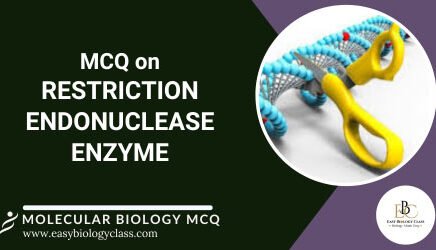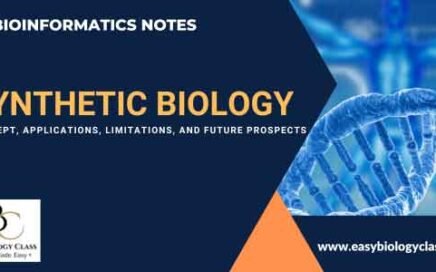
MCQ on Restriction Enzymes with Answers (PDF)
A restriction enzyme, or restriction endonuclease, is a protein produced by bacteria that cuts DNA at specific sequences, known as recognition sites. These enzymes serve […]

A restriction enzyme, or restriction endonuclease, is a protein produced by bacteria that cuts DNA at specific sequences, known as recognition sites. These enzymes serve […]

Restriction endonucleases, or restriction enzymes, are proteins that cut DNA at specific recognition sequences, usually palindromic. Found naturally in bacteria, they serve as a defense […]

Arabidopsis thaliana as a Model Organism: Have you ever wondered how scientists study plants to understand their growth, development, and responses to the environment? One […]

Imagine if we could redesign and engineer living organisms to solve some of the world’s biggest problems—like producing clean energy and curing diseases. Welcome to the exciting field of synthetic biology! In this blog post, we’ll break down the concept of synthetic biology, explore its applications, discuss its limitations, and peek into what the future might hold.

pBR322 is a well-known plasmid DNA used in molecular biology and biotechnology. It was one of the first plasmids developed for cloning and genetic engineering. […]

The development of mRNA vaccines against infectious diseases is a significant milestone in the history of medicine. These vaccines have global attention for their extraordinary […]

The molecular basis of inheritance refers to the process by which genetic information is stored, replicated, and transmitted from one generation to the next through […]

MCQ on PCR and its Applications: PCR (Polymerase Chain Reaction) is a molecular biology technique used to amplify DNA segments exponentially. It involves cycles of […]

MCQ on SDS PAGE: SDS-PAGE (Sodium Dodecyl Sulfate Polyacrylamide Gel Electrophoresis) is a widely used laboratory technique to separate proteins based on their size. It […]